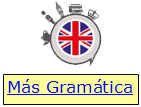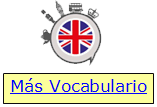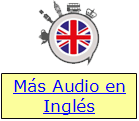|
Pronunciation – The ‘-ed’ endings on
past regular verbs
The –ed ending is added to regular verbs in the simple past and the past
participle.
It can be difficult to pronounce correctly, even at advanced level.
Luckily, there are some guidelines to help you pronounce this correctly.
There are three different ways to pronounce the –ed ending. However, the
majority of endings have the ‘e’ as silent. It is not often pronounced.
Two words in which the ‘e’ is pronounced are ‘started’ and ‘collided’.
If the final sound of the infinitive is a /t/ or a /d/ sound, the ‘e’ is
pronounced. For example, want – wanTED. Need – neeDED.
1./t/ after voiceless sounds (you can
identify a voiceless sound by putting your hand on your head or your
throat and checking for vibration. If there’s no vibration, it’s a
voiceless sound).
Examples of voiceless sounds are:
/p/ – play
/s/ – say
/th/ – three
/ch/ – chips
/h/ – hello
/sh/ – wash
Here are some verbs that end with the /t/ sound after a voiceless sound:
helped
boxed
asked
impressed
pushed
laughed
2./d/ after a voiced sound (voiced sounds can be identified by feeling
vibration when you place your hand on your head or your throat).
Here are some examples:
/j/ – July
/d/ – dad
/g/ – give
/b/ – baby
/th/ – these
/n/ – nine
Here are some verbs that end with the /d/ sound after a voiced sound:
poured
explained
tried
robbed
required
stayed
3. /Id/ after the sounds /d/ and /t/:
added
wanted
needed
ended
confided
inflated
acted
Listen and repeat the 3 groups with Reza and I.
Now choose the correct –ed sound for the words that Franz suggested:
to change – changed
to follow – followed
to peek – peek
to play – pleyed
to kidnap – kidnapped
to murder – murdered
try some more:
start – started
live – lived
watch – watched
kiss – kissed
visit – visited
laugh – laughed
end – ended
edit – edited
love – loved
park – parked
record – recorded
 *Dispones
de más
PODCAST en inglés publicados en los cuadernos anteriores *Dispones
de más
PODCAST en inglés publicados en los cuadernos anteriores
a los que puedes acceder directamente así como al índice de su
contenido. |



 *Dispones
de más
*Dispones
de más


